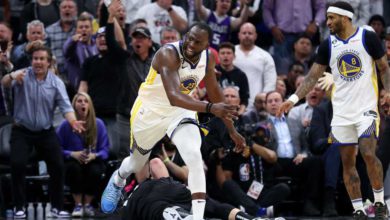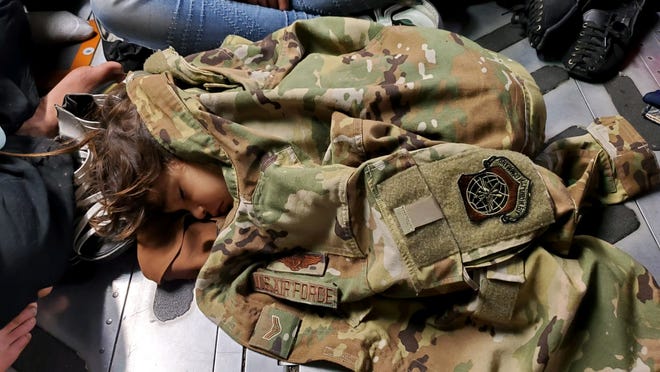
Parents might see a COVID-19 vaccine approved for their elementary school-age children as soon as October or November.
Approval of the vaccine could come with an emergency use authorization, just as it did for adults and adolescents, said Dr. Robert Frenck, director of the Gamble Center for Vaccine Research at Cincinnati Children's Hospital Medical Center.
A delay is possible, but Frenck is pretty confident that it won't be much longer before the vaccine is available. A trial of the vaccine for children ages 5-12 began at Cincinnati Children's on March 29.
Masking rules in schools:Updated list from Southwest Ohio and Northern Kentucky
Frenck expects the vaccine will get emergency use authorization – the same way the Food and Drug Administration OK'd the use of COVID-19 vaccines for adults and adolescents – after having two months of safety data following the last dose of vaccine for at least 50% of the participants.
"So, I am assuming that the FDA will use the same logic for younger children," Frenck said.
The Pfizer vaccine trial is for children 5-11, and the Moderna, for children 6-11, he said. He should know. A vaccine expert, Frenck is working alongside Dr. Grant Paulsen, a pediatric infectious disease doctor at Cincinnati Children's who is leading the Pfizer vaccine studies for children 5-11 and 2-4.
"My guess is that the FDA will have data on the Pfizer pediatric trial by the end of this month and … make a decision in October or November," Frenck said. The FDA is not required to lower the age of the emergency use authorization, though. "So, they will need to review the data to decide if lowering the age is the right thing to do."
'Safety at top of mind'
The FDA is aware of the barrage of questions and concerns among parents of young children, who've gone back to school for another semester of learning during the novel coronavirus pandemic. Approval of a vaccine for these children will have "safety at top of mind," the agency said in a statement released Sept. 10.
Some clinical trials for this younger age group of children are still enrolling kids. Some are administering vaccine, and some are following their participants, the FDA said. After the trials are done, the data is analyzed. And after that, the manufacturers may ask for that emergency use authorization.

The FDA statement says it will "examine the data to evaluate benefits and risks and be prepared to complete its review as quickly as possible, likely in a matter of weeks rather than months." The agency promised in its statement to the public that it would not cut corners – "just like (with) every vaccine decision we’ve made during this pandemic."
Will my kid's vaccine be the same as my adult jab?
Frenck said the vaccines that are being studied have the same formulation as those for adults and adolescents, but are being given at lower doses than those made for teenagers and adults – and they have proven to be just as effective.
"For the trials in kids under 12, the first thing we did was to re-evaluate doses to determine if the kids needed the same dose as adults," he said. "Both Moderna and Pfizer found that you could lower the dose and get an equivalent immune response as in the adults."
That's not the same as a "partial dose," Frenck said. "We are giving enough vaccine dose to get an immune response equivalent to that of adults who received the higher dose."
Thinking of jumping the age line? The doctors say don't do it
Medical professionals warn parents shouldn't try to get the current, higher-dose vaccines for children younger than 11.
That's not something that they'd do easily anyway, Frenck said, although it has happened at some places in America.
The American Academy of Pediatrics in August urged pediatricians not to give the vaccine off-label to younger children. Approved drugs generally can be prescribed off-label by doctors.
“The clinical trials for the COVID-19 vaccine in children ages 11 years old and younger are underway, and we need to see the data from those studies before we give this vaccine to younger children,” said the academy president, Dr. Lee Savio Beers.
The FDA's newest statement concurred, saying, "It is important for the clinical trials to be completed before vaccinating young kids."
OK, doc: What do we do while we wait?
Frenck said that the FDA can afford to take the necessary time to complete its evaluations in part because there is other protection available: "We have a method to effectively prevent COVID: masks and appropriate distancing."

Even so, he urged parents to follow through with those protections. And he recommends they get their children vaccinated as soon as possible after the FDA gives the thumbs' up.
"We now have had over 450 children die of COVID and over 19,500 hospitalized due to COVID," Frenck said. For the week ending Sept. 2, he noted, "Over 250,000 new cases of COVID were diagnosed in children. That is the highest number ever."
Children now account for more than 1 in 4 new cases of COVID-19 in Ohio and it's straining staffing in childrens' hospitals across the state, a number of pediatricians said at Wednesday's COVID-19 briefing by Gov. Mike DeWine.
It is true, Frenck said, that the likelihood for a child to become seriously ill from the virus is much less than for older adults and others with specific risk factors. But, he said, "I can’t tell which child is the one who will get very sick from COVID. That is why we need to vaccinate everyone."

And what about my kids under 5?
Two final age groups under study are 2- to 4-year-olds (or 5-year-olds in the case of Moderna's vaccine), and infants and toddlers 6 months to 2 years. Frenck said that after the vaccine is approved for the group up to age 11, each subsequent group will likely follow in two to three months.
Source link






